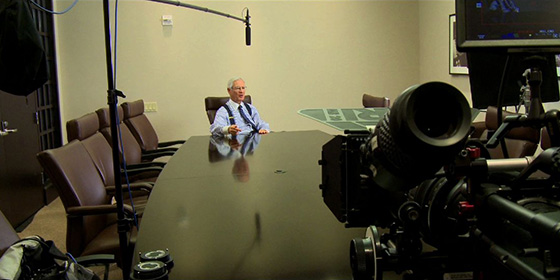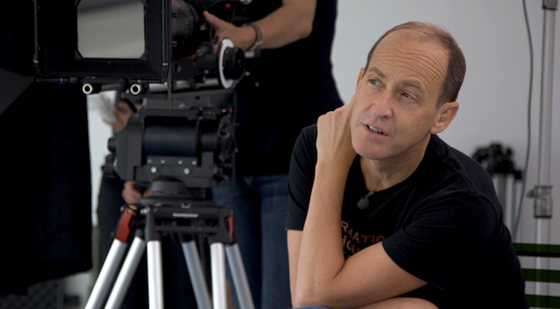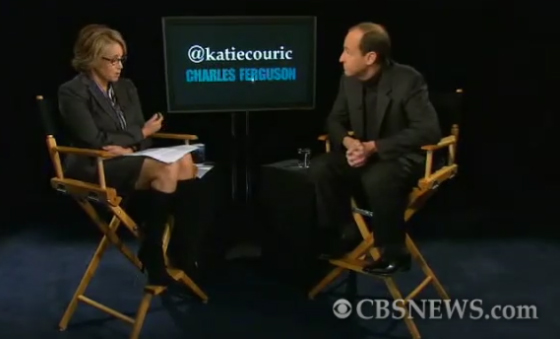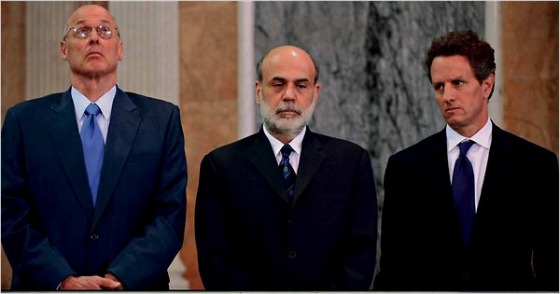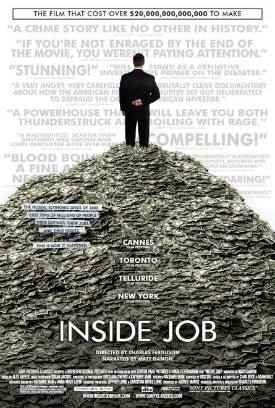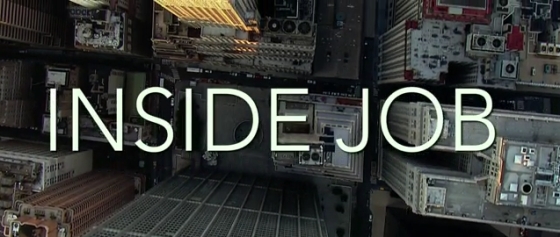One of the best documentaries in recent years was Charles Ferguson’s devastating examination of the financial crisis.
In just under two hours, Inside Job takes us on a journey through the full horror of how a deregulated Wall Street, aided and abetted by a compliant political system, wreaked havoc on the world.
Using interviews, graphics, editing and narration from Matt Damon, the film explores the causes of the current economic meltdown and speaks to a variety of experts and policy makers including Nouriel Roubini, George Soros, Eliot Spitzer, Barney Frank and Christine Lagarde.
After premiering at Cannes 2010, it was quickly acclaimed as one of the best reviewed films of the festival and eventually won the Oscar for Best Documentary back in March.
At the ceremony Charles Ferguson gave a pointed critique of Wall Street and the financial industry:
This DVD release will probably be the best opportunity for a wide audience to see the film and it hasn’t lost any of its power since coming out at cinemas.
Perhaps most depressingly, the financial and political systems examined by the film seem to be in denial about the corruption and short-term thinking that led to disaster in 2008.
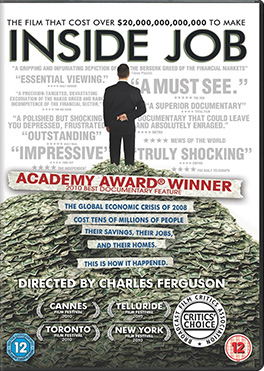 The highlight of the extras on this disc is probably the audio commentary by Ferguson and his producer Audrey Marrs, which is an informative guide to not only the content of the film but how they put it all together.
The highlight of the extras on this disc is probably the audio commentary by Ferguson and his producer Audrey Marrs, which is an informative guide to not only the content of the film but how they put it all together.
There is also a 12-minute featurette called “Behind the Heist: The Making of ‘Inside Job'” that features Ferguson discussing the context of the film in more depth.
The deleted scenes feature outtakes of nine interviews with people featured in the film: Charles Morris (5m), Dominique Strauss-Khan (7m), Eliot Spitzer (8m), Gillian Tett (4m), Jerome Fons (2m), Lee Hsien Loong (1m), Satyajit Das (9m), Simon Johnson (1m) and Yves Smith (3m).
These outtakes could perhaps have delved a bit deeper, but it seems Ferguson’s aim was for the film itself to be clearest explanation of the financial crisis.
If you didn’t see this at cinemas, it is a film I would urge you to see, as it remains the most concise and powerful explanation of a key issue of our time.
Ferguson gave some interesting interviews around the release of the film which included this 35 minute discussion with Katie Couric:
Then there is this 15 minute chat with Charlie Rose:
There is also this hour long discussion Ferguson did with the Commonwealth Club in March:
Inside Job is out now on DVD from Sony Pictures Home Entertainment
> Buy Inside Job on DVD from Amazon UK
> Listen to my interview with director Charles Ferguson
> Read my full review of Inside Job from LFF 2010
> Official site
> Find out more about the late 2000s financial crisis at Wikipedia
